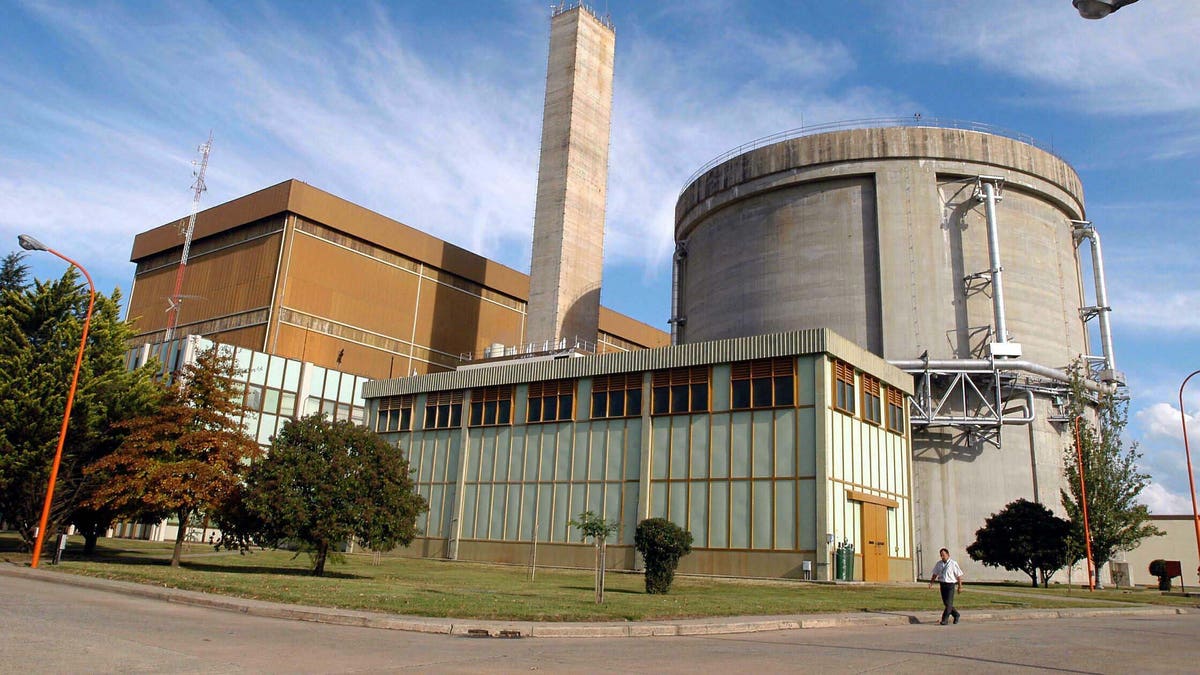
Embalse. Central Nuclear. Vista de la planta, desde adentro del predio. Foto Rinaudo, 26.4.08 26ato4.jpg 3322979 (Mandatory cretid : La Voz del Interior)
The nuclear crisis unfolding in Japan has raised concerns about the vulnerability of nuclear power plants in Latin America, experts said.
The 9.0-magnitude earthquake and subsequent tsunami that triggered the worst nuclear disaster since Chernobyl has revived a heated debate about the safety of the power plants and deposits of waste in Argentina, Brazil and Mexico.
Those countries have five operational nuclear stations between them, not to mention a few under construction and plans for more. And though their challenges differ from Japan – the power plants in Argentina, for instance, are not prone to tsunamis – those countries are at risk because of a lack of planning and poor infrastructure.
"The gravest thing happening in Argentina, and this is a notable difference than in Japan, where the population is prepared for not only natural disasters but are technologically advanced...there is no preparation," said Raúl Montenegro, president of biology at the Foundation of the Defense of the Atmosphere. "There are no plans.
"As a society," he continued, "we are totally unprepared."
The Argentine government, though, said its power plants are unique and designed differently from the ones in Japan.
"We don't have to adopt any special measure [to] our nuclear energy stations," said Rubén Navarro, manager of the reactors control at the Argentine Regulatory Nuclear Authority.
Argentines, too, seemed unfazed by the prospect of a nuclear disaster in one of the country's reactors.
"I have no fear," said Carolina Erijmovich, an architect. "I don't understand nuclear energy and plants, but I heard a lot experts [on Tuesday] and what I understand is that if this energy source is well used, it's good."
Others, however, said the bigger concern was that the power plants were obsolete. Atucha I and Embalse, which became operational respectively in 1974 and 1984, are costly to shut down, too.
And the cost of keeping the stations open, Montenegro said, is disproportionate to the energy they produce for the country; Atucha I and Embalse account for only six percent of the country's overall energy.
Deposits of combustible waste, too, are susceptible to accidents and even terrorism, Montenegro said. Though not operational, the waste is no less radioactive and has fewer safeguards in place.
"It has as much radioactive material as the central stations...but not as much protection," he said. "If impacted, by a plane for example...that could be another Chernobyl, many times over."
In Brazil, experts fear that residents are ill-informed about evacuation. The infrastructure, too, is full of poorly constructed roads.
In the state of Rio de Janeiro, where power plants Angra 1 and 2 are located, cities are still recovering and under construction from last year's torrential rains that left hundreds dead.
Luiz Pinguelli Rosa of the Federal University of Rio de Janeiro said Brazil's nuclear power plants has some advantages over Japan – like an additional, more flexible cooling system – but concerns persist.
"Our system compared to the Japanese has advantages, but we are...vulnerable," Rosa said.
Still, the apparent dangers have not deterred Latin American countries from building nuclear plants. Chile and Mexico, which already has an operational station near Veracruz, are working on plants, as are Argentina and Brazil.
Montenegro, however, said even though the nuclear industry is seemingly struggling – older plants and the Japan crisis could scare off employees and prospective workers – there is a political draw to building one.
"Nuclear energy...is a decision that has been based on military strength," he said. "There is an extreme nationalism to it."
"But it is not a logical option," he added. "It seems to me that to think of nuclear as an energy option...is a fairy tale."
Teresa Buscaglia and Luís Henrique Vieira, freelance journalists in Argentina and Brazil, contributed to this story.
Follow us on twitter.com/foxnewslatino
Like us at facebook.com/foxnewslatino








































